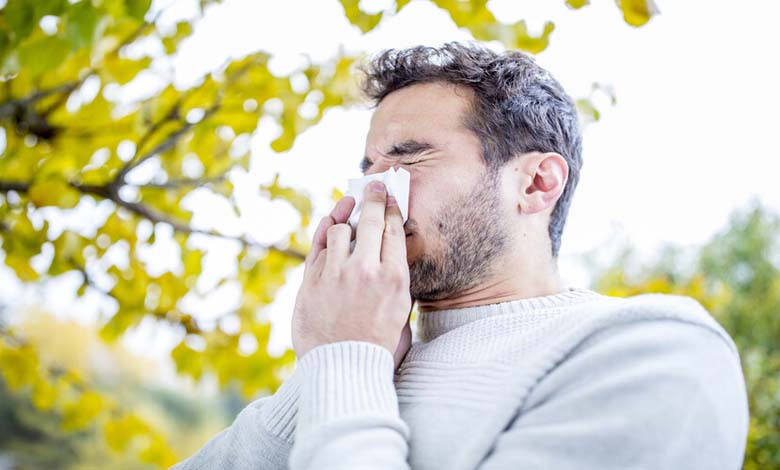How Can Allergies Reduce the Risk of Lung Cancer?

Lung cancer is one of the most common and deadliest forms of cancer worldwide. Despite medical advancements, it is often diagnosed at an advanced stage, making prevention strategies critically important. While known risk factors such as smoking, air pollution, and occupational exposure to toxins are widely accepted, emerging research has uncovered a surprising potential protective factor: allergies.
-
Discovery of an Unexpected Link between Diet and Lung Cancer
-
A New Innovation Detects Lung Cancer through Breathing
Though allergies are generally considered a dysfunction of the immune system, recent findings suggest they might enhance immune surveillance and play a role in reducing cancer risk, especially in the lungs.
1. What Are Allergies?
Allergies are hypersensitive immune responses to harmless substances like pollen, dust mites, animal dander, or certain foods. In allergic individuals, the immune system mistakenly identifies these substances as threats and mounts an inflammatory response involving histamines and other chemicals.
-
Experts: Lung Cancer Does Not Only Affect Smokers
-
A promising technology for early detection of lung cancer
This constant immune alertness, while inconvenient and uncomfortable, might actually strengthen the body’s defenses against abnormal cell growth.
2. Immune Surveillance and Anticancer Potential
The key theory linking allergies to cancer protection is based on the concept of immune surveillance—the body’s natural ability to detect and destroy abnormal or precancerous cells before they become tumors.
-
Lung Cancer awareness month… The leading killer among all cancers
-
8 Simple Habits for a Cancer-Free Life
Allergic individuals tend to have more active immune cells, such as T lymphocytes, macrophages, and eosinophils. These cells may more efficiently recognize and eliminate cells undergoing malignant transformation, preventing tumor formation at early stages.
3. Epidemiological Evidence
Several large-scale studies conducted across different populations have suggested a link between respiratory allergies (e.g., hay fever, allergic asthma) and a moderately lower risk of lung cancer.
-
Shocking Scientific Discovery: The Surprising Strategy Cancer Cells Use to Survive Nutrient Shortages
-
“Manipulating Light”: A Butterfly Wing-Inspired Technology for Cancer Diagnosis
For example, a study published in the Journal of the National Cancer Institute found that people with a history of allergic rhinitis had a 20% to 30% reduced risk of lung cancer compared to non-allergic individuals. However, results have been inconsistent across studies, with some reporting no association or even opposite trends depending on specific allergy types and patient populations.
4. The Double-Edged Sword of Inflammation
Inflammation plays a central and complex role. While acute allergic inflammation may help eliminate mutated cells, chronic inflammation—such as that seen in severe asthma—can damage tissues, weaken immune defenses, and foster cancer development.
-
Scientists Achieve a Major Breakthrough in Cancer Treatment: What is the Role of Cells?
-
Chemicals in Drinking Water Raise Cancer Risk
Thus, whether allergies protect or promote cancer may depend on the type, duration, and severity of the inflammatory response.
5. Possible Molecular Mechanisms
Researchers have proposed several biological mechanisms to explain the protective link between allergies and lung cancer:
-
“Biological Age”: A New Window for Early Detection of Colon Cancer
-
Will Artificial Intelligence Play a Role in Cancer Detection?
- Enhanced apoptosis: Immune cells in allergic individuals may be more efficient at inducing programmed cell death in precancerous cells.
- Cytokine regulation: Allergic reactions involve cytokines such as IL-4 and IL-13, which may modulate immune responses in ways that inhibit tumor growth.
- Physical barrier enhancement: Chronic allergic conditions can lead to thicker mucosal linings in the lungs, potentially creating a more robust barrier against carcinogens.
6. Limitations and Cautions
It’s important to emphasize that the evidence is not definitive. Current data shows associations, not causation. Lifestyle factors, environmental exposures, and genetic predispositions also play a critical role and could confound the observed effects.
-
This “Affordable” Device Detects Cancer with a Drop of Blood
-
“Promising” Discovery: Identification of Cancer-Causing Immune Cells
Additionally, some allergic conditions may increase the risk of cancers in other organs due to sustained chronic inflammation.
7. Implications for Prevention
Even if allergies offer some protection against lung cancer, they are not a substitute for evidence-based prevention strategies. To minimize lung cancer risk, the most effective approaches include:
-
Study: Cancer Hits Young People Hard
-
New innovative method destroys 99% of cancer cells
- Avoiding tobacco use;
- Reducing exposure to environmental pollutants and carcinogens;
- Following a nutrient-rich, antioxidant-heavy diet;
- Staying physically active;
- Seeking early medical advice for chronic respiratory symptoms.
Allergies, once seen merely as immune system malfunctions, may provide key insights into natural defense mechanisms against cancer. Though the exact relationship remains under investigation, understanding how immune hypersensitivity can influence tumor growth could unlock new pathways for cancer prevention and therapy. In the meantime, embracing a healthy lifestyle remains the most reliable way to protect respiratory and overall health.












